Published
- 06:00 am
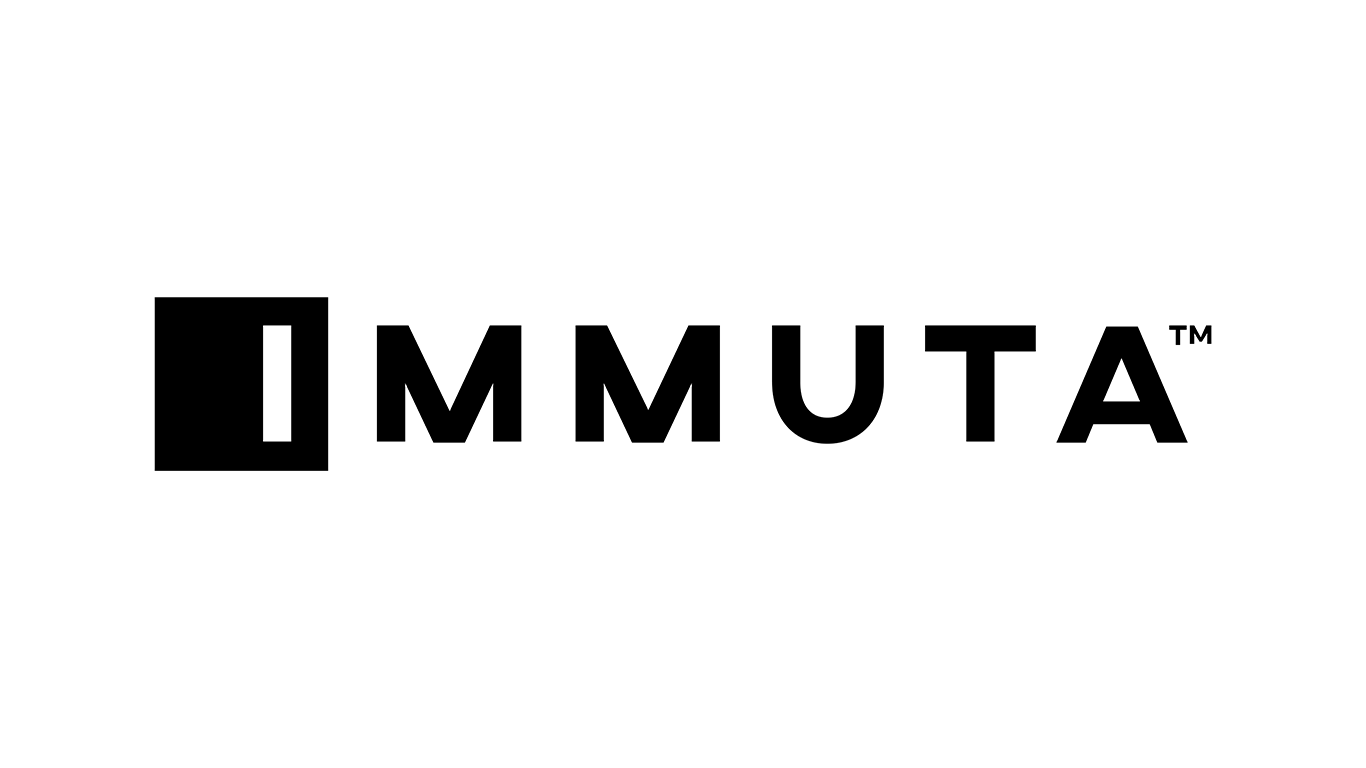
Vineeth Menon, Head of Data Lake Engineering at Swedbank commented, “We needed to build a solution that would enforce trust in our security, management and access to data internally, whilst protecting our customers assets and data. We knew we needed to change our culture, processes and platforms to create resilience for the future.“Our aim was to create more intelligent access control with greater efficiency. This was only possible through an advanced implementation of access control, which facilitates a higher degree of automation and transparency.“Trust is now built into processes, data users have a purpose, and access is both need-based and secure. The cloud migration process was a huge transformation that now allows data science and analytics teams to access the data they need when they need it.”
Colin Mitchell, VP of EMEA and APAC Sales added “With the help of Immuta and Databricks, Swedbank's Enterprise Analytics Platform unlocked an attribute- and purpose-based access control model. This capability has already delivered a number of significant benefits. For example, the unified data lake that enables better access to all data across Swedbank's Enterprise Analytics Platform’s various functional areas. The implementation has improved the platform’s analytical capabilities and reduced time-to-market for new products and services.”
Related News
- 01:00 am
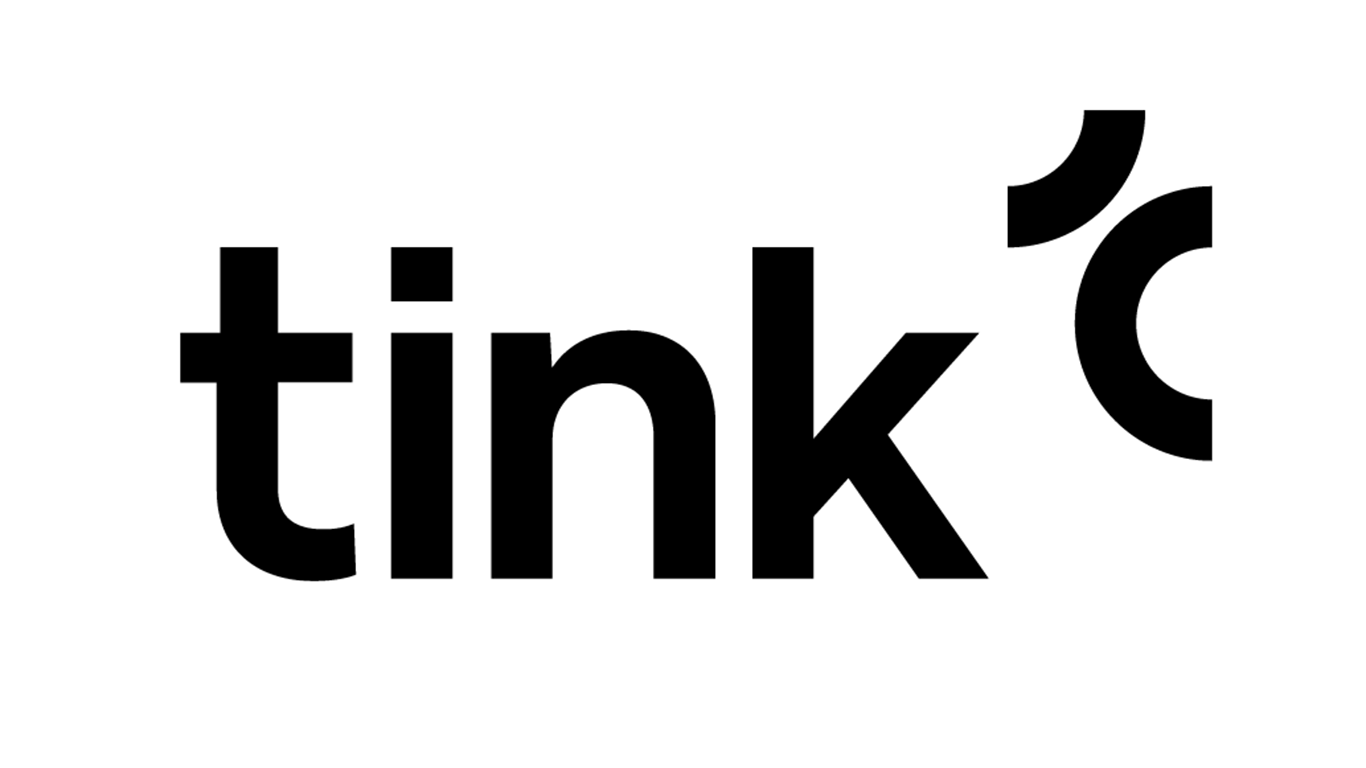
New research from Tink, Europe’s leading open banking platform, today reveals that struggling consumers are citing delays in the returns process as a reason for slashing their spending.
The new poll found that almost a third (30%) of UK consumers are spending less online because refunds take too long, and they’re worried about their bank balance. Similarly, over half (52%) state they’re less likely to shop with a retailer again if a refund takes a long time to receive.
This suggests that retailers are losing out on valuable revenue and repeat business as a result of lengthy refunds processes.
Merchants struggle with cost of returns
Meanwhile, retailers are anticipating a difficult year ahead, with many struggling to handle rising costs and falling sales. In a recent survey of UK online retailers, Tink revealed that four in ten (40%) retailers are focusing on cutting costs as a result of the current economic environment.
One area in particular which is flagged as a drain on business is returns, with over half (54%) of online retailers saying they are or expect to be forced to stop offering free returns as a result of the economic climate.
Particular pain points for merchants include the cost of processing returns (43%) and the length of time that it takes for a customer to get their money back (40%). But with the returns process being a key differentiator for consumers, online merchants risk adding even more friction to the experience and damaging customer relationships if they begin charging for returns.
Encouragingly, survey findings suggest that a significant number of forward-thinking retailers understand that getting refunds right is an essential part of improving the returns process for shoppers and merchants alike. Indeed, over a third (36%) believe that instant refunds would enhance the customer experience of returns while 32% feel they would ultimately reduce the returns cost to their business.
New payment method offers solution to refund conundrum
It’s clear that there is considerable appetite from online merchants to overhaul the returns and refunds process. Four in ten (39%) would like to see the cost of handling refunds reduced, while one in three (33%) would value a payment method that offers real time refunds to customers when they return an item.
The good news for both merchants and consumers is that such a payment solution exists: Pay by Bank.
Powered by open banking, Pay by Bank holds obvious advantages for retailers looking to optimise the returns and refunds process — removing some of the cost and hassle from the returns process. And from a consumer perspective it allows their money to be instantly refunded into their account as soon as a return is processed, removing friction and significantly boosting customer experience.
Tom Pope, Head of Payments and Platforms at Tink, commented: “It’s clear that the UK’s online retailers are facing the twin challenges of rising costs and meeting consumer expectations when it comes to returns and refunds. As a result, they risk missing out on vital revenue and repeat business in an increasingly difficult operating environment. In order to turn returns into a competitive advantage in 2023, they can invest in payment solutions that speed up the refunds process and, in turn, boost shopper spend, improve retention and enhance customer experience.
“Pay by Bank holds the key to overcoming the ‘refund conundrum’ – helping to cut costs associated with returns for merchants and increasing the speed of refunds from days to seconds for consumers. It’s a win-win.”
Related News
- 07:00 am
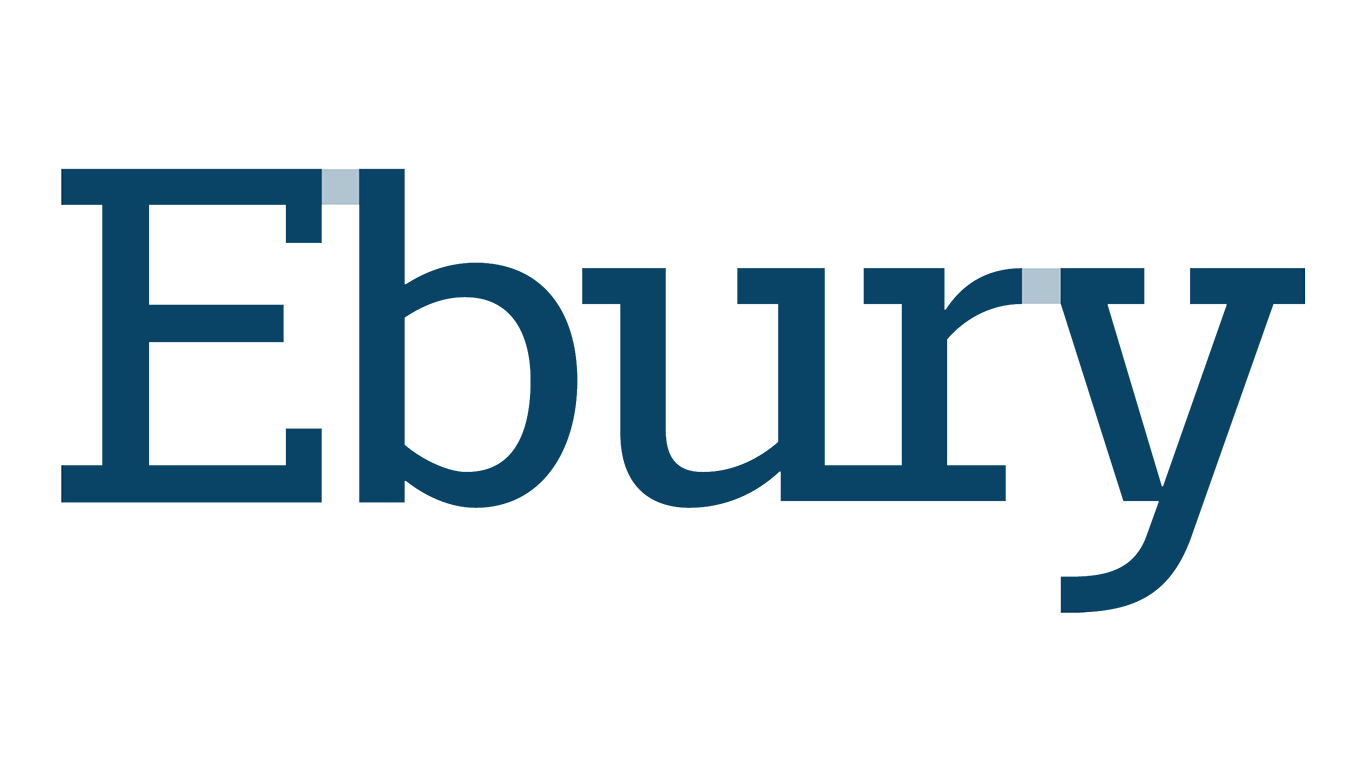
The Mass Payments arm of Ebury, the global financial technology firm, is delighted to launch a Representative Office in the heart of the research and technology triangle of North Carolina in Cary.
The opening of this office builds on Ebury Mass Payments’ strategy to grow its presence significantly throughout North America, through its partnership with Community Federal Savings Bank, and internationally, servicing new and existing high-volume payment clients through its global offering.
The new office will be run by John Moran, who has more than 30 years of experience and success in capital markets, FX and digital payments and enterprise technology solutions. He has held senior positions at JPMorgan, Deutsche Bank and GE.
Ebury Mass Payments supports businesses across a range of sectors, including insurance providers, payroll providers, pension administrators, financial institutions and other industries. Its cutting-edge technology, bespoke client services deliver unmatched, award-winning support for any company needing high-volume payment and execution solutions.
Ebury has the ability to settle in over 200 countries across 140 currencies with a geographical footprint spanning 32 global offices. It has transacted over $21 billion in the last 12 months.
Owain Walters, Global Managing Director of Ebury Mass Payments, commented: “We are delighted to be establishing a presence in the United States as we look to meet the huge and growing demand for our services in the mass payments sector. Our ability to transact across various countries and currencies means we are well-placed to support global businesses with their payments and payroll functions.
“Harnessing John’s vast experience in the payments and fintech industry, we are confident of strengthening the profile of Ebury Mass Payments in North America through its existing partnership and improving the award-winning services we offer our clients.”
John Moran, Head of Ebury Mass Payments in the US stated, “There is a huge opportunity to expand our presence in North America across many sectors that need international payment and FX services delivered with bespoke and expert care.
“I am delighted to be leading this new team in the US. I look forward to working with the team to support our growing businesses with our state-of-the-art technology solutions, as the premier non-bank provider of high-volume payment and FX execution solutions.”
Related News
- 05:00 am

GoCardless, a global leader in bank payment solutions, has appointed three executives from open banking provider Nordigen, which it acquired last year, to its leadership team.
Rolands Mesters, co-founder and former Chief Executive Officer at Nordigen, is now Vice President of Bank Account Data at GoCardless. Fellow co-founder Roberts Bernans, previously Chief Product Officer at Nordigen, has been named Vice President of Connectivity, and former Nordigen Chief Technology Officer Jake Sebastian-Jones has joined the Product team as a Director of Engineering.
Mesters and Bernans will lead key areas of the business as the fintech unicorn seeks to capitalise on the $400 billion global open banking opportunity and become a leading provider of open banking data solutions. In his new role, Mesters will lead GoCardless’ new Bank Account Data group, helping more businesses to use open banking data to offer new services, make quicker and more efficient decisions and reduce fraud.
Bernans will be responsible for building and scaling GoCardless’ connections to payment schemes around the world and rapidly expanding its open banking connectivity footprint. The ex-Nordigen team will play a pivotal role in transforming GoCardless into a leading open banking provider for any business that wants to tap into open banking data or payments.
By incorporating Nordigen's next-generation open banking connectivity, which already covers more than 2,400 banks across 31 countries, GoCardless expects to significantly accelerate the rollout of its open banking-powered offerings, bringing the benefits of open banking to an even wider audience. Bolstered by its new in-house capabilities to quickly build high-quality connections, in the next 12 months GoCardless plans to:
· Expand its Variable Recurring Payments and PayTo offerings in the UK and Australia, respectively
· Introduce real-time payment capabilities inthe US
· Increase the global footprint of Verified Mandates, its anti-fraud feature already live in the UK, US, France and Germany, by launching in multiple markets
· Launch its open banking data offering
Mesters said: “I’m excited to join GoCardless so we can bring open banking data to even more businesses around the world. By adding open banking data to GoCardless’ offering, we can build a single port of call for all businesses that want to reap the many benefits of open banking, from faster, more secure payments to creating more intelligent decisioning processes.”
Bernans said: “There is no better time to join GoCardless as we set out to build the world's bank payment network. Over the past 18 months, GoCardless has emerged as a major player in the open banking space with the release of features like Instant Bank Pay and Verified Mandates. The next phase is to bring open banking connectivity in-house. This means GoCardless can not only accelerate our speed-to-market for open banking solutions -- we can also provide businesses a way to connect to multiple banks in multiple markets, all in one simple step.”
Hiroki Takeuchi, co-founder and CEO of GoCardless said: “I’d like to extend a warm welcome to Rolands, Roberts and Jake as they and the rest of the Nordigen employees join the GoCardless team. As we enter the next phase of our growth, open banking will be a key enabler, and data and connectivity will play a massive role. In-house connectivity will open up new revenue streams, taking us toe-to-toe with traditional open banking providers while also helping us move faster and develop even better products and features. Open banking data will underpin and enrich everything we do, delivering more value to our customers and spurring the creation of new products and services.
“The opportunity is huge for any company that can provide both open banking data and payments; in the UK, for example, only 6% of customers use both. That’s why we believe it’s still early days for open banking, and why we’re excited to continue driving its development around the world.”
Related News
- 02:00 am
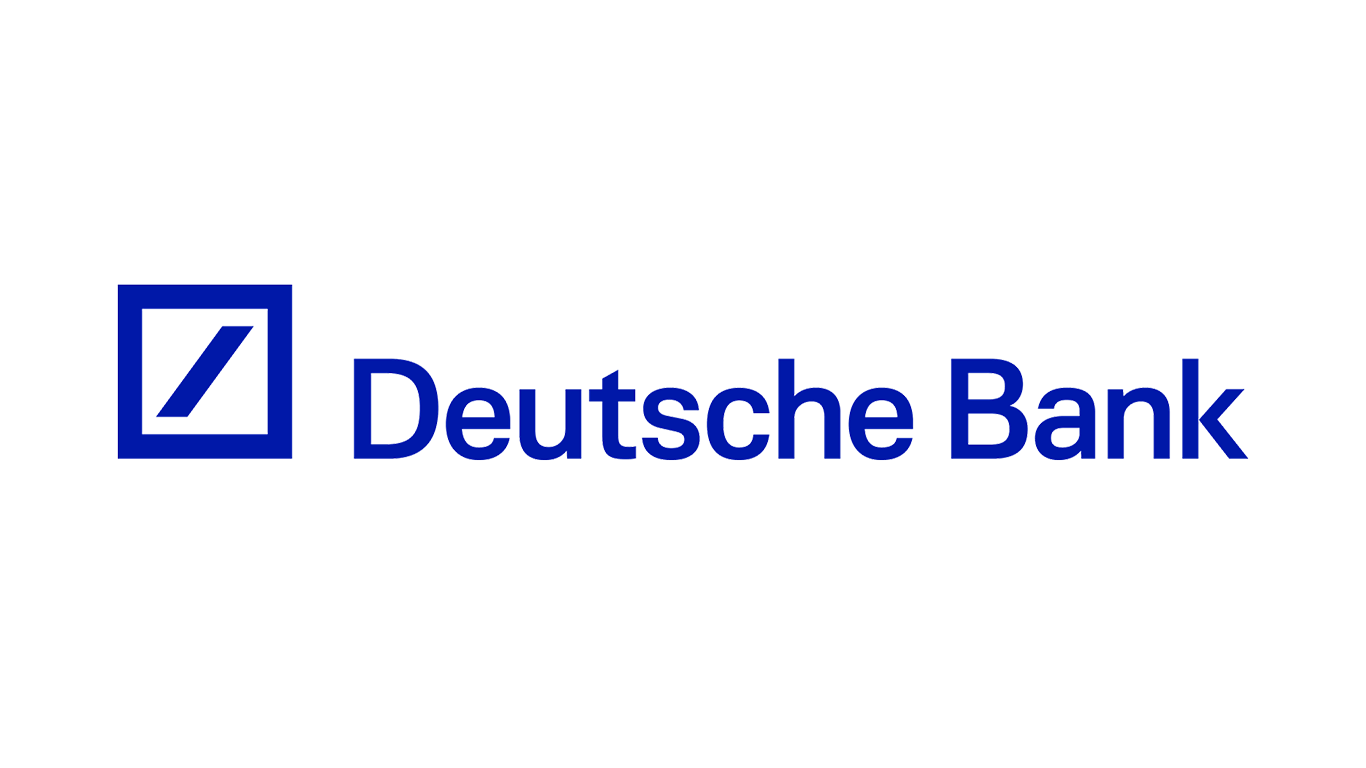
Deutsche Bank has acquired a strategic stake in Australian paytech DataMesh Group to accelerate the build-up and service offering of the bank’s merchant solutions business across Asia Pacific. Deutsche Bank and DataMesh did not disclose financial terms of the transaction.
With DataMesh’s Unify payment orchestration layer, Deutsche Bank can operate seamlessly with individual acquirers in different countries, enabling merchants to accept payments through online methods within individually regulated currency zones. DataMesh is consolidating the payment data cross border and enables Deutsche Bank clients to centrally control their payments across these currency borders and different jurisdictions. The APAC region combines more than 10 currencies and more than 40 different payment methods.
“DataMesh is the perfect fit for Deutsche Bank’s Merchant Solutions APAC initiative. Its revolutionary payment orchestration layer enables us to offer a comprehensive payment solution for our clients, who demand a global one-stop shop for their payment acceptance in various countries and regions,” said Ole Matthiessen, Global Head of Cash Management and Head of Corporate Bank APAC.
“With its investment in DataMesh, Deutsche Bank underpins its ambitions in the region. In a first step, Deutsche Bank is launching the solution in India. Over the course of 2023, the bank will be able to offer online payment acceptance in five more markets (Australia, South Korea, Thailand, Indonesia and Vietnam) as part of its broader international rollout of the strategy” added Matthiessen.
Mark Nagy CEO of DataMesh said: “DataMesh assists banks to significantly enhance their merchant solutions capabilities. Given Deutsche Bank’s position as a true ‘Global Hausbank’, they are perfect partner to enable DataMesh’s international expansion plans. We are delighted to also welcome Deutsche Bank as a shareholder.”
The APAC region accounts for over half of global payments revenues and the strong growth is expected to continue in the coming years.
Related News
- 05:00 am
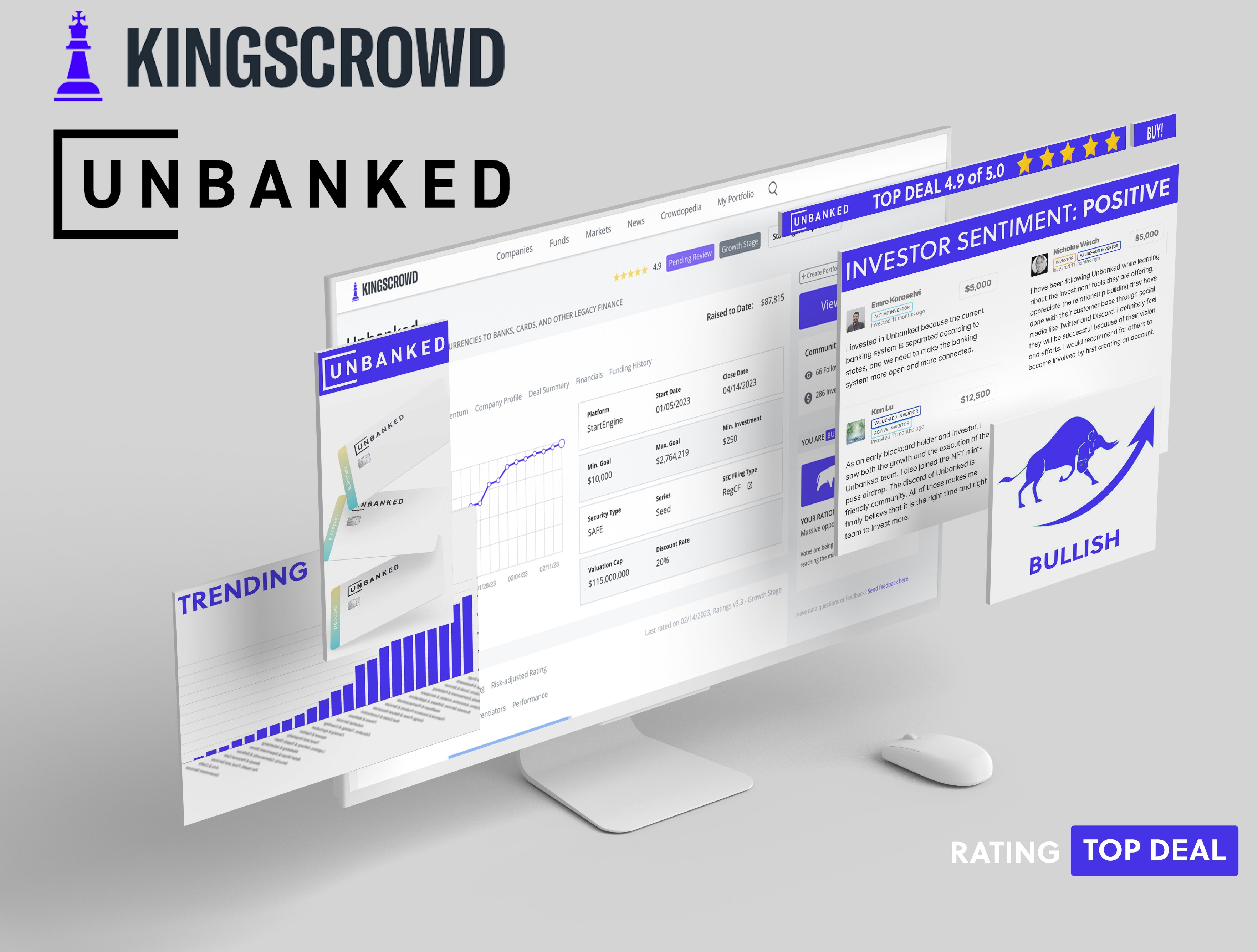
It was announced today that KingsCrowd Capital, a data-driven venture capital fund, has invested in Unbanked Inc after the company achieved a “Top Deal” rating from the venture fund's parent company KingsCrowd. Unbanked is a US-based fintech startup that connects traditional banking products with blockchain and digital assets. It is known as the leading provider of white-label crypto card issuance and program management service for Web3 companies in the US and internationally.
Unbanked has made headlines recently with its Mastercard partnership and as the latest winner of the Shark Pitch Competition judged by celebrity investor Kevin O’Leary. Unbanked took 1st place in the competition and was awarded a $25,000 cash prize. Kevin O’Leary stated, “If I had to put two million bucks to work I’d probably put it in there right now.” As part of the Shark Pitch competition, Unbanked opened a limited number shares via a SAFE with a 20% discount for individuals looking to invest.
KingsCrowd Capital is known for its data-driven approach to investing. The fund uses a rigorous two-step process for identifying promising startup investment opportunities in the online private market. First, it identifies startups that have received high ratings through KingsCrowd's patent-pending rating algorithm. Then the KingsCrowd Capital team does further diligence to pick out the startups with the highest potential. Startups like Unbanked that reach "Top Deal" status have risen to the top 10% of the due diligence funnel on the KingsCrowd ratings and analytics platform. Unbanked received a 4.9 out 5 score and the full report is available on the KingsCrowd website.
“Our investment research team has followed Unbanked for over a year and spent a lot of time talking with their team during our due diligence,” said Ahmad Takatkah, CIO at KingsCrowd. “During our conversations, it became clear that Unbanked has built something incredibly special and defensible in the fintech industry which made it a great fit for our portfolio.”
Unbanked provides fintech infrastructure and program management for many popular cryptocurrency-powered debit cards. Clients include Litecoin Foundation, StormX, Nexo, and Stacks who use Unbanked’s crypto-friendly banking-as-a-service platform to operate their own crypto cards. Unbanked’s fintech suite includes card issuance, compliance monitoring, liquidity engine, modular API, and other financial products that act as an easy gateway from dollars to digital currencies and back.
“I am thrilled to have KingsCrowd invest in Unbanked, but also share their research and analysis with other investors,” said Ian Kane, Co-founder and Co-CEO of Unbanked. “Their team was thorough and spent the time to really understand our business and what makes Unbanked unique - I believe that shows in their report.”
Related News
- 09:00 am
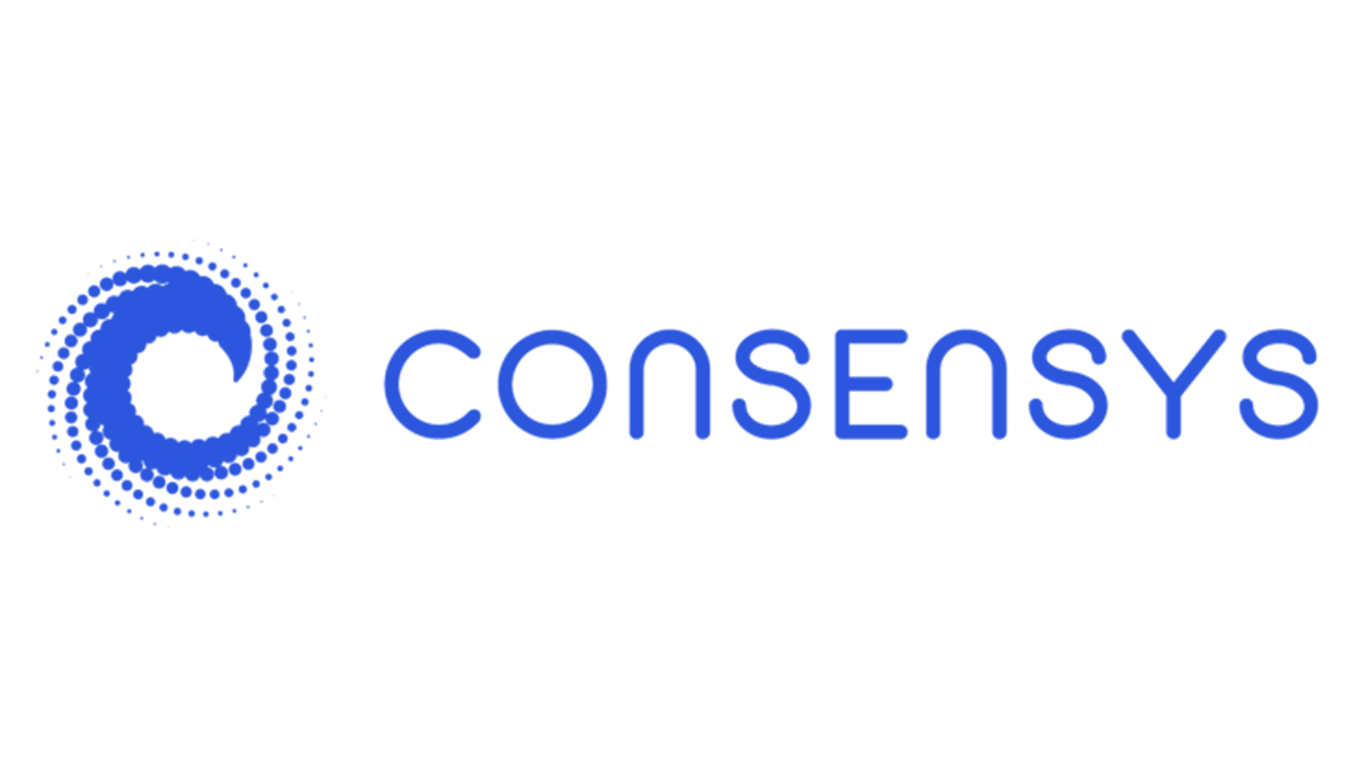
Today, ConsenSys announced the acquisition of HAL, a no-code blockchain development tooling platform that helps individuals and organizations query and automate blockchain data. With this acquisition, Infura, the world's leading Web3 API provider from ConsenSys, will extend capabilities in its developer stack by using the strong configurable webhooks/notification service built by HAL. This integration will allow developers to create alerts and notifications at the protocol level for various signals.
HAL is a blockchain data listening and automation platform with automated workflow tools (i.e. notifications) across email, Discord, Slack, Telegram, and Twitter including:
Digital assets trading: Track wallet, liquidity levels, tokens and NFT prices, relevant swaps, and collateral health
Decentralized governance: Boost DAOs' engagement through notifying the community about upcoming voting.
Blockchain compliance: Track crypto activities for tax purposes and push data from blockchains to centralized IT systems.
“Infura has been investing in tools and features that will strengthen the developer experience and fill the gaps in the building process. Enabling developers a seamless end-to-end experience is a key goal and one of the most important trends is low-code / no-code solutions. Hal is a great fit for Infura as it allows users to access more than 40+ higher-level APIs for blockchain / on-chain listening and signals”, said Eleazar Galano, co-founder of Infura. “This integration means a step forward in Infura’s plan to evolve beyond the leading RPC provider and become a leader in blockchain development tools,” Galano added.
The announcement signals a major step in the acceleration of ConsenSys' vision to continue developing its core product suite and building better systems for a decentralized future.
The acquisition of HAL by ConsenSys comes just one year after the company acquired MyCrypto to team up with the market-leading Web3 wallet, MetaMask. The plan is for HAL to build on the user experience improvements that have come in the wake of the MyCrypto acquisition and enable MetaMask to offer a dynamic, personalized notification system, which should help drive engagement throughout the ecosystem.
In ’22 and ’23 ConsenSys has witnessed modularization, growth, and maturation of the Ethereum ecosystem. The company continues to be on the lookout for strong acquisition opportunities and is actively tracking many of the most exciting projects in the space in niches like wallet security, account abstraction, various aspects of MEV, Layer 2 scalability, privacy, Web3 Components (e.g. identity, verifiable credentials, NFTs) and more.
The 10 talented HAL employees joining ConsenSys team will bring their experience in low-code/no-code development solutions to bolster the Infura product suite. This will extend Infura’s capabilities in higher order APIs, while offering a new level of composability for developers to create “recipes” for notifications which can be helpful for their team or users. In sum, HAL will provide Infura with unique technical expertise on designing and implementing effective blockchain automation and notification solutions.
"Since day one, we believed bridging Web3 and Web2 is paramount to improve blockchain user experience, reach less technical people, scale blockchain to mass adoption and fulfill the trustless, people-empowering Web3 vision we are all excited about," said Marco De Rossi, President and co-founder at HAL. "Joining our efforts with ConsenSys is the way to tremendously accelerate the impact of HAL technology by bringing it to millions of users," De Rossi added.
Related News
- 09:00 am
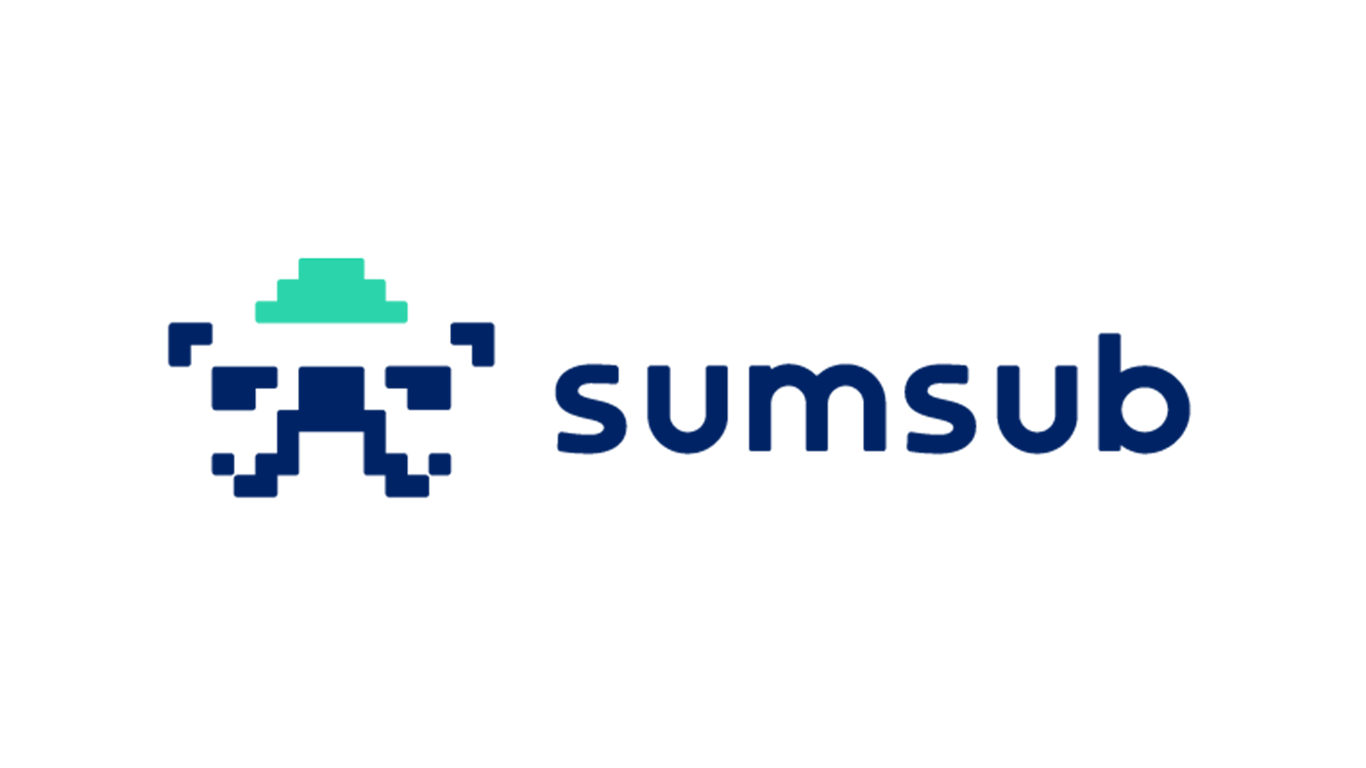
Sumsub, an all-in-one verification platform, today published its Complete Guide to Business Verification (KYB) for businesses in the fintech, banking, payment, crypto, e-commerce and gambling industries.
Business verification market size is expected to grow at a CAGR of 11.81% and reach $348 million by 2028. Sumsub’s new guide will help companies tackle KYB-related compliance challenges across different jurisdictions and find best ways to build effective business verification workflows.
In 2021, 98% of B2B retailers, marketplaces, and manufacturers experienced financial losses due to fraud attacks. Fraud is on the rise in B2B industries. To stay safe and compliant, businesses need impeccable due diligence when it comes to their customers and partners. This means conducting proper background checks, clarifying companies’ ownership structure and identifying Ultimate Beneficial Owners (UBOs), and much more. If these crucial steps are overlooked, governments can levy significant penalties. For example, Finanstilsynet, Norway's financial regulator, fined DNB, the country's largest lender, over $48 million in 2020 for due diligence failures and non-compliance with AML regulations. Earlier, DNB had been under investigation for allegations of transferring millions to a business customer’s shell companies.
In the guide, Sumsub’s team of compliance experts explains the process of a legal entity’s verification in great detail and shares customers’ best practices along with useful compliance tips—all intended to make it easier and safer for businesses to onboard companies as opposed to individuals.
Here are five key business verification trends highlighted in the guide:
Ultimate Beneficial Owner (UBO) verification remains one of the biggest KYB challenges due to jurisdictional loopholes;
UBO status is now assigned with control of 10-25% of a business, depending on the jurisdiction, and it is required to be verified in accordance with AMLD5;
While business verification rules are generally similar around the world, every country has its own compliance differences to be aware of. For example, in the U.S. business verification regulations exist as a result of the Bank Secrecy Act (BSA), but are enforced by the Treasury Department’s Financial Crimes Enforcement Network (FinCEN). While in countries like China only one institution, The People's Bank of China (PBOC), regulates KYB;
Using offshore islands and tax havens for fraud and money laundering is now a common occurrence. Investigations into bankruptcies, VAT frauds, and other illegal practices reveal "ghost firms” that perform illicit activities—so determining a company's structure, ownership, purpose, and activity through due diligence procedures such as KYB is crucial;
Sanction screening is becoming increasingly important as the geopolitical situation changes. Even non-regulated businesses like car-sharing services or marketplaces should also screen for sanctions to ensure there are no restrictions in cooperating with a counterparty.
“Sumsub’s all-in-one verification platform includes onboarding of legal entities as well as traditional KYC checks, and this corresponds with the global demand to make business verification a meaningful part of the due diligence procedure. With access to the profiles of over 400 million companies and beneficiaries from registries across 220 countries and territories, it takes Sumsub only 3 hours to complete full-cycle KYB verification. As for the automated KYB check, it takes Sumsub as little as 3 minutes to perform. By embedding legal entity checks into their customer onboarding flows, companies safeguard their reputation and avoid potentially huge penalties from regulators. And Sumsub is ready to help these companies along the way by offering an advanced AI-based KYB solution coupled with global compliance expertise,” said Tony Petrov, CLO at Sumsub.
To download the Complete Guide to Business Verification (KYB) for free, please go to: https://sumsub.com/guides-reports/full-guide-to-business-verification-kyb/.
Related News
- 02:00 am
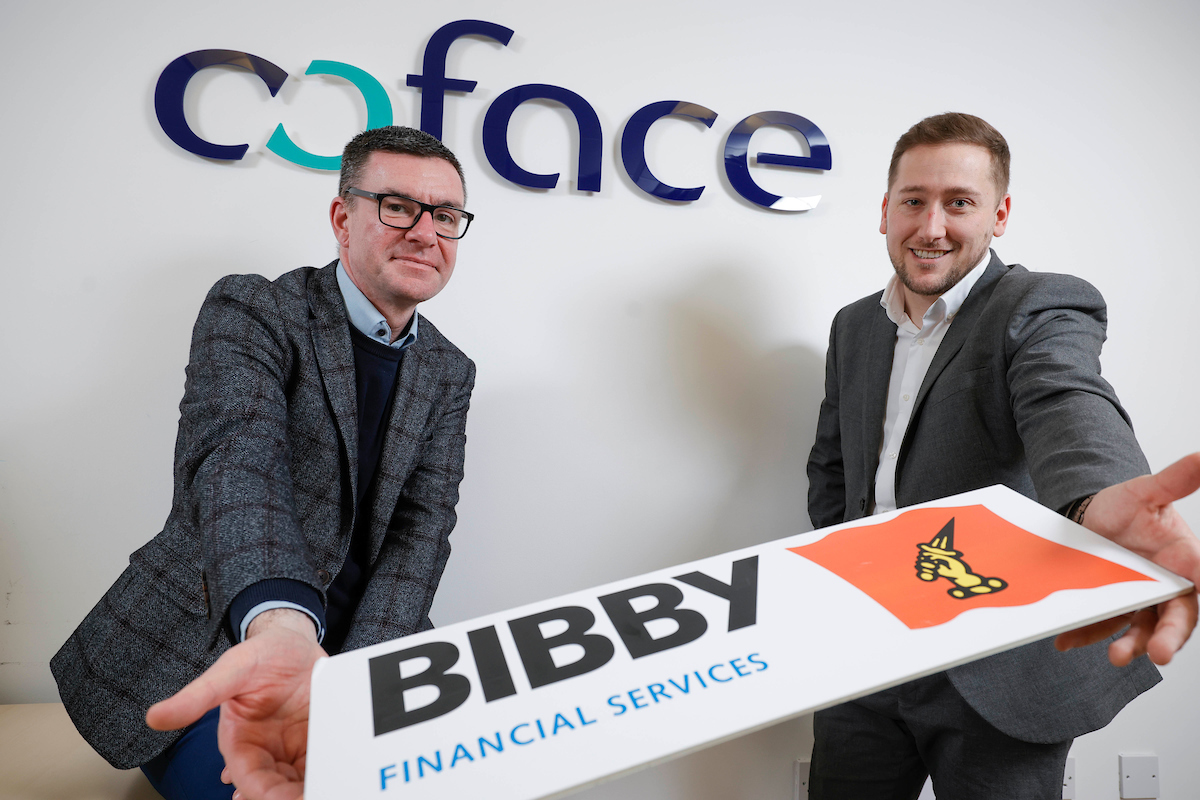
Bibby Financial Services, a leading provider of financial support and funding solutions to Irish SMEs, and Coface, a global leader in trade credit insurance, have joined forces in a new collaboration to help SME’s in Ireland access securely structured funding solutions while also ensuring they are protected against potential lost revenue.
The aim of the alliance is to highlight the benefits of secure funding solutions which can support the cashflow needs of a business, while also ensuring the necessary credit insurance policy is in place to protect a business from bad debts.
The collaboration will involve Bibby Financial Services, which is part of an international network that operates in more than 40 locations across Europe and Asia, offering their Invoice Finance product suite to customers to facilitate cashflow and investment activities. Invoice Finance offers businesses access to cashflow outstanding from their unpaid invoices, helping them to access income they have already earned but not yet received. As a result, businesses can use their own funds to improve day-to-day or seasonal cashflow fluctuations or finance bigger growth plans.
In tandem, Coface, which works with 100,000 clients in 100 countries, will provide the necessary credit insurance policy to protect your business from unpaid debts, late payments, political risk, pre-shipment risks and other losses arising from non-payment for goods or services.
Coface utilises its business intelligence database to offer policyholders reliable information on their commercial partners and protects them against non-payment risks. Coface provides valuable credit assessments and business information on over 100 million companies worldwide. With instant commercial scores, real-time analysis, and supply chain alerts, an SME can assess the financial health of customers and focus on the most profitable, minimise risk, protect supply chains and identify new opportunities. Coface also provides a helpful early warning system about changes in the risk status of customers so you can avoid foreseeable losses. Credit insurance is suitable for any company that provides credit to another company, locally or internationally.
Welcoming the announcement, Mark O’Rourke, Managing Director, Bibby Financial Services, said: “We’re delighted to collaborate with Coface for this groundbreaking service as we understand the importance of working with key partners that understand and support our ability to make financing as accessible, flexible and affordable as possible. As we face into a year of uncertainty due to a range of macro-economic and geo-political factors, this new collaboration between Bibby Financial Services Ireland and Coface will offer SME’s as well as their financial advisors and investors peace of mind that should the worst happen – whether through a customer’s insolvency or protracted default – their bottom line is protected, their cashflow is maintained and their future is safeguarded, whether they trade domestically or internationally.”
Speaking about the announcement, Kevin Behan, Head of Commercial with Coface Ireland, said: “We’re excited about this collaboration with Bibby Financial Services because we feel it provides businesses in Ireland with everything they need to gain access to funding for growth and protection against cash flow issues. Our economists are predicting growth to slow down in 2023 due to the rising prices experienced last year. For businesses looking to grow or having issues with receivables, invoice finance offers an excellent source of funding. But coupled with credit insurance, you are not only protected against non-payment, you can also access better rates of funding and in some cases credit insurance is a requirement already.”
Related News
- 01:00 am
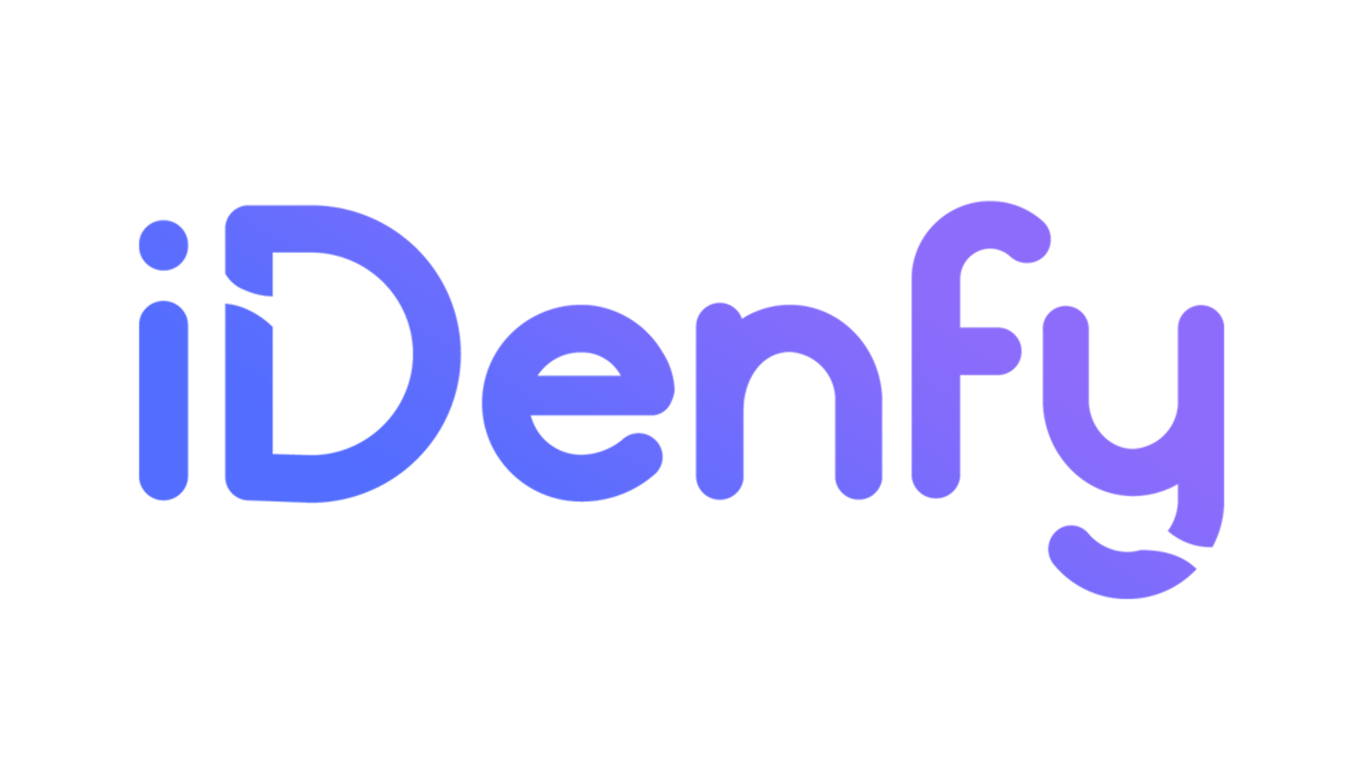
iDenfy, a global ID verification, compliance, and fraud prevention startup, announced the launching of a new attribute on its IDV platform. With the goal of collecting relevant customer information easier, iDenfy’s KYC Questionnaire will enable partners to configure custom questions and apply them to verification sessions.
iDenfy’s questionnaire form allows companies to create a fully automated identity verification flow, which can now be upgraded by adding custom questions. According to the tech startup, the new solution is designed to simplify the workflow for compliance officers while ensuring Know Your Customer (KYC) and Anti-Money Laundering (AML) compliance.
Due to high demand and a stricter regulatory landscape, iDenfy noticed new opportunities to branch out and help its current partners to maximize identity verification efficiency. The tech startup then decided to create a new tool that could improve and digitize the whole KYC screening process. As a result, the new KYC Questionnaire has pre-built templates, helping users to edit and customize their versions of the questionnaire form.
According to iDenfy, this is a unique, no-code feature in the identity verification market, which helps the tech startup gain a competitive edge. The KYC Questionnaire enables iDenfy’s platform users to filter out customers' verification results based on the created questionnaire questions that can be customized to provide any required data.
When creating the feature, iDenfy’s development team focused on simplicity, ensuring that the KYC Questionnaire would provide ease to the end user. Compared to traditional paper-like methods, iDenfy’s digital questionnaire’s design is simple, requiring less work and time to fill out the whole template. According to the startup, using the new feature helps reduce manual labour and minimize human error.
Each step can be set up by adding desired questions and answer types. As claimed by the tech startup’s officials, its straightforward questionnaires guarantee a hassle-free journey for the customers. As for business owners and compliance officers, the newly built-in feature eliminates the need for lengthy emailing processes and enhances data security.
IDenfy continues upgrading its API and web app solutions to help businesses turn to a completely digital identity verification process. Domantas Ciulde, the CEO of iDenfy, claims that this approach helps save time on conducting complex due diligence checks and ensures that any business relationship is secured.
“The custom KYC Questionnaire digitally collects and filters all information using the same identity verification platform or just one tool. This enables our partners to create a swift, user-friendly customer onboarding process while minimizing fraud risks and ensuring regulatory compliance,” — added Ciulde.









